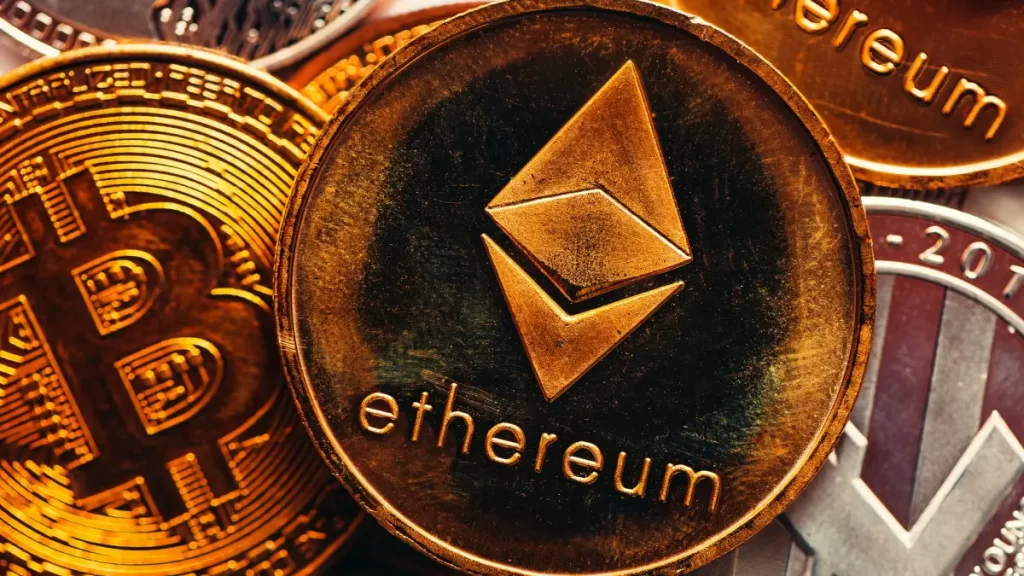Andrew Tate is an individual whose multifaceted career spans across several disciplines, including kickboxing, entrepreneurship, reality television, and online personal development. Although he is predominantly known for his accomplishments in the kickboxing world, his portfolio of endeavors continues to diversify, creating a unique public figure.
Andrew Tate’s background
Born Emory Andrew Tate on December 13, 1986, in Washington, D.C., Andrew is of mixed American and Moldovan descent. His father, Emory Andrew Tate, was a chess International Master and one of the top African-American chess players. He was also a five-time Armed Forces Chess Championship winner. This aptitude for strategy and competition clearly resonated in his son, Andrew, who demonstrated a similar knack for competition, albeit in a different arena—kickboxing.
Kickboxing was Andrew’s first claim to fame, and he enjoyed immense success in this field. He has competed at both national and international levels, amassing four world championships. His journey began at age 12 when he began kickboxing training under his older brother, who was already a champion in the sport. Known for his precise, aggressive style, and indomitable spirit, Andrew ascended the ranks and left a mark on the sport that is still talked about today.
His success in kickboxing opened up other avenues for him to explore, and he soon found himself entering the world of reality television. In 2016, Andrew participated in the UK’s reality TV show “Big Brother,” where he stirred up controversy due to his outspoken nature. Though his stay in the Big Brother house was cut short, his appearance on the show nonetheless increased his public visibility and established him as a recognized figure in popular culture.
Beyond the spotlight of television, Andrew also ventured into the world of business and entrepreneurship. He is the founder of ‘Embrace the Pain,’ a lifestyle brand promoting resilience and mental toughness. This venture reflects his kickboxing spirit, encapsulating the idea of using one’s pain as fuel to overcome life’s challenges. It offers merchandise, workout routines, and motivational content, all curated to push its customers to their limits.
Moreover, Andrew is a self-proclaimed digital entrepreneur, running several online businesses. In recent years, he has spent considerable effort educating people on wealth generation and financial independence. His paid webinars and online courses on passive income generation, wealth management, and lifestyle design have become increasingly popular. Andrew often uses his social media platforms to espouse his philosophy of hard work, discipline, and financial prudence.
Andrew’s impact extends beyond business into the online personal development space. His persona of relentless ambition, uncompromising attitudes towards success, and constant self-improvement resonates with many. His ‘King’s War’ program, a 12-week online course, is designed to help men improve all areas of their lives, including fitness, finance, and social interactions. Andrew often imparts tough love and does not shy away from controversial statements to motivate his audience to make significant life changes.
Despite his numerous achievements, Andrew Tate has had his fair share of controversies. His views, particularly on mental health issues, have been the subject of much debate. Andrew is a polarizing figure; while some admire his forthright approach, others criticize him for being overly harsh and unsympathetic. Yet, there is no denying that his unique blend of brutal honesty and motivational rhetoric has left an indelible mark on his followers.
Looking at Andrew’s life, one cannot help but see a portrait of an individual who is constantly evolving and expanding his horizons. His energy, coupled with his competitive nature and desire for self-improvement, has propelled him to significant heights in disparate fields.
Andrew Tate Net Worth
Andrew Tate has previously claimed to be the world’s first “trillionaire”, but his net worth is actually around $700 million.
Most of his net worth is held in business assets, such as his casinos, with other sizeable assets being his Bugatti Chiron and his crypto portfolio
EthVIP has surged in popularity in recent years, and in this review we look at its pros and cons.
What is Ethereum?
Ethereum, launched in 2015, is more than just a cryptocurrency; it is a groundbreaking open-source, blockchain-based platform that has revolutionized the digital world. Its innovation lies not just in its native cryptocurrency, Ether (ETH), but also in its decentralized applications (DApps) and smart contracts, enabling unprecedented functionality and potential for various sectors.
Blockchain technology, Ethereum’s underlying structure, is a type of distributed ledger technology that uses cryptographic techniques to securely record information across many computers. This decentralization eliminates the need for a central authority, thereby increasing transparency and reducing the risk of censorship or fraud. While Bitcoin popularized this technology, Ethereum expanded on it in novel ways.
Smart Contracts
Ethereum’s most significant innovation is its development of “smart contracts”, self-executing contracts with the terms of the agreement directly written into code. Smart contracts run on Ethereum’s blockchain, and they automatically execute when their predefined conditions are met, without requiring a middleman or trusted third party. This groundbreaking functionality has opened up numerous possibilities across industries like finance, real estate, and law.
In addition to smart contracts, Ethereum enables the development of DApps. These are applications that run on a P2P network of computers rather than a single computer. DApps built on Ethereum can offer a wide range of services, from games to decentralized finance (DeFi) applications. DeFi, an innovative financial sector that uses blockchain to remove intermediaries from financial transactions, has seen substantial growth due in large part to Ethereum’s capabilities.
Ether
At the heart of Ethereum is Ether, its native cryptocurrency. Ether is used to power operations on the Ethereum network, acting as “fuel” for executing transactions and running DApps. This mechanism is often referred to as “gas”. Those who own Ether can participate in the Ethereum ecosystem, whether by sending transactions, executing smart contracts, or staking their Ether to help secure the network.
Ethereum operates on a consensus mechanism known as Proof of Work (PoW), much like Bitcoin. PoW involves miners solving complex mathematical problems to validate transactions and add them to the blockchain. However, Ethereum plans to transition to a more energy-efficient consensus mechanism called Proof of Stake (PoS), with an upgrade known as Ethereum 2.0, or “Serenity”. This upgrade promises to improve Ethereum’s scalability, security, and sustainability.
Ethereum’s PoS mechanism will involve validators, who will validate transactions instead of miners. These validators will be selected to create a new block based on the amount of Ether they hold and are willing to ‘stake’ as collateral. This transition is expected to reduce the energy consumption of the Ethereum network drastically, as it does not require the extensive computational power associated with PoW mining.
Ethereum’s potential reaches beyond cryptocurrency and finance. Its smart contracts and DApps open up vast possibilities for other areas, like supply chain management, voting systems, and identity verification. With its transparent and immutable ledger, Ethereum could revolutionize these sectors by providing trustless, automated systems that increase efficiency and eliminate fraud.
For instance, in supply chain management, Ethereum can provide end-to-end visibility and traceability. Products can be tracked from their origin to the end consumer, ensuring authenticity and reducing counterfeit goods. Similarly, in voting systems, Ethereum could ensure transparency and prevent vote manipulation, providing a secure, verifiable, and tamper-proof system.
Ethereum’s Limitations
However, despite its potential, Ethereum also faces challenges. The platform has struggled with scalability issues, with high network congestion leading to slow transaction times and high fees. While the Ethereum 2.0 upgrade promises to address these issues, it’s a complex process that has already faced several delays.
Furthermore, Ethereum’s decentralization also means there’s no central authority to govern activities. This lack of regulation has led to concerns about the potential for illegal activities and scams. The ICO (Initial Coin Offering) boom of 2017, which was largely powered by Ethereum, led to many fraudulent projects and significant financial losses for many investors.
Despite these challenges, Ethereum’s potential and influence are undeniable. Its innovative combination of blockchain technology, smart contracts, and DApps has created a new digital landscape with vast potential. As Ethereum continues to evolve, we can expect it to keep shaping the digital world, enabling more decentralized, transparent, and efficient systems.
The potential applications for Ethereum’s technology are far-reaching, extending well beyond the world of cryptocurrency and blockchain, promising a future where intermediaries may become obsolete, and automated, trustless systems become the norm.
Research by GVfootball forecasts crypto sponsorship in football to be worth over $200 million per annum by 2030. But why are so many crypto projects partnering up with professional football teams – particularly in the Premier League, La Liga and Serie A – and will this trend continue indefinitely?
In recent years, the world of football, revered as a symbol of passion and unity, has seen a new player entering its arena: cryptocurrencies. The marriage of these two entities is fostering a unique symbiosis that offers exciting opportunities for the sport, its fans, and the burgeoning crypto industry.
Crypto sponsorship in football has become a burgeoning trend, underscoring a paradigm shift that has permeated the sport. Football clubs, often revered as bastions of tradition, have started to embrace cryptocurrencies and blockchain technology, reflecting their commitment to innovation and adaptability.
The football industry’s recognition of cryptocurrency has its roots in the shifting financial landscape. Traditional monetary systems have been under siege by digital assets, with more people moving towards cashless transactions.
Why are football clubs accepting crypto deals?
The appeal of cryptocurrencies—decentralization, potential for high returns, and the ability to facilitate international transactions quickly and cheaply—has proven to be irresistible to football clubs.
Football clubs have sought partnerships with crypto companies to gain a share of this rapidly growing market. For instance, high-profile teams like Barcelona FC, Manchester City, and Paris Saint-Germain have partnered with various crypto platforms, signing sponsorship deals worth millions of dollars. These collaborations aim to increase the visibility of cryptocurrencies among millions of football fans worldwide, thereby propelling crypto adoption.
But the clubs are not the only beneficiaries. Cryptocurrency companies view football sponsorship as an opportunity to enter mainstream consciousness. With a global audience of over 3.5 billion football fans, these sponsorships allow crypto companies to achieve an unprecedented level of visibility and recognition. They offer a unique channel to disseminate the cryptocurrency narrative to a broad, diverse audience that transcends geographic boundaries, age brackets, and social classes.
Moreover, crypto sponsorship is also rewriting the rules of fan engagement. Blockchain-based fan tokens, offered by platforms like Socios.com, are pioneering a fan engagement revolution. These tokens, often linked with a specific club, allow fans to vote on minor club decisions, access exclusive merchandise, and participate in ‘meet-and-greet’ opportunities. By providing a tangible sense of ownership and influence, fan tokens are fostering a deeper connection between clubs and their fans.
Challenges and risks
This brave new world of crypto sponsorship in football is not without its challenges. Cryptocurrencies are volatile, and their legal status varies by jurisdiction, which can complicate sponsorship deals. Moreover, the complexity of blockchain technology and the relative unfamiliarity of cryptocurrencies among the general public pose substantial hurdles to widespread acceptance.
A report by GVfootball also warned of the risks of fans of football clubs being scammed by the sponsors – usually via an NFT drop or token pre-sale.
Despite these obstacles, the adoption of crypto sponsorships in football is not just a passing fad. Rather, it represents a significant shift in how football clubs and the sporting industry at large adapt to and embrace the digital revolution.
In essence, football is more than just a game. It is a microcosm of society and a reflection of the world’s changing financial landscape. The rise of crypto sponsorship in football underscores this dynamic interplay between tradition and innovation.
As cryptocurrencies continue to gain momentum, we can anticipate an increasingly crypto-savvy fan base and more football clubs capitalizing on this trend. The fusion of football and crypto is not just a match played on the pitch; it’s a game-changer for the industry.
The XXC Renegade 1000 coin was initially a super bullish token for the crypto price, with analysts releasing ambitious price predictions. However, five years on, the XXC Renegade 1000 coin is abandoned and none of the price predictions materialised.
XXC Renegade 1000 Highlights the Risks of Crypto
Investing in cryptocurrencies has become increasingly popular, attracting investors worldwide with the promise of high returns. However, the crypto market is fraught with risks that investors must be aware of before diving in.
Market Volatility
One of the most significant risks of investing in cryptocurrency is its extreme volatility. Prices of cryptocurrencies can skyrocket or plummet within short periods, often based on speculative demand rather than inherent value. This volatility is attributed to several factors, including limited liquidity, market sentiment, and news events. For instance, a single tweet from a prominent figure can lead to massive price swings. Such unpredictability makes it challenging for investors to make informed decisions and poses a high risk of loss.
Regulatory Uncertainty
The regulatory environment surrounding cryptocurrencies is still in its infancy and varies significantly across countries. Regulatory announcements can have dramatic effects on the market. For instance, announcements of tighter regulations or outright bans in certain jurisdictions have led to sharp declines in cryptocurrency values. This uncertainty makes it difficult for investors to anticipate future legal constraints that could affect the viability or legality of their investments.
Security Issues
The digital nature of cryptocurrencies makes them susceptible to security risks such as hacking and fraud. Despite advancements in blockchain technology, exchanges, and wallets have been compromised, leading to substantial financial losses for investors. Furthermore, the irreversibility of transactions means that once funds are lost or stolen, retrieving them is often impossible. Investors must be vigilant and adopt robust security measures to protect their assets.
Market Manipulation
The cryptocurrency market is also vulnerable to manipulation due to its relatively unregulated nature and concentration of holdings among a small number of individuals or groups. Practices like “pump and dump” schemes, where the price of a cryptocurrency is artificially inflated to sell off at a profit, causing the price to crash, can lead to significant losses for unsuspecting investors.
Lack of Inherent Value
Unlike traditional investments, most cryptocurrencies do not generate cash flow or have a physical asset underlying their value. Their worth is highly dependent on speculation and market sentiment, which can lead to bubbles and subsequent crashes. This lack of inherent value complicates the assessment of a fair price for cryptocurrencies, increasing the investment risk.
BLACKPINK, a South Korean girl group, has profoundly transformed the global music landscape since their debut on August 8, 2016. Formed by YG Entertainment, one of South Korea’s leading music companies, the quartet consists of members Jisoo, Jennie, Rosé, and Lisa. Each member brings a unique element to the group, making BLACKPINK a mesmerizing ensemble of talents that captivates audiences around the world.
Jisoo, the oldest, embodies a captivating charisma that often leads the group, both on stage and off. Her ability to balance light-hearted fun with a grounded sense of maturity helps foster a warm and welcoming dynamic within the group. Despite not having an initial fluency in English, Jisoo has shown remarkable resilience and adaptability by learning the language to reach a broader audience.
Jennie, the group’s main rapper, has a unique flair for transforming into a powerful, charismatic artist on stage while maintaining a gentle and approachable persona off it. Her distinct rapping style, coupled with her versatile singing ability, makes her a dual threat in the K-Pop industry. Jennie is also renowned for her fashion-forward style and is regarded as a global fashion icon.
Born in New Zealand, Rosé brings a certain level of diversity to BLACKPINK. Her enchanting vocals and emotional depth in delivery differentiate her in the K-pop scene. Rosé’s musical journey began long before BLACKPINK, and she frequently shares her passion for the craft through covers of popular songs, showcasing her range and individuality as an artist.
Last but not least, Lisa, the main dancer, is from Thailand. Her sharp, charismatic, and compelling dance moves make her a visual spectacle in every performance. Lisa’s energy and unique style have made her a popular figure in the dance world, transcending cultural barriers.
BLACKPINK’s music incorporates a vast range of genres, including EDM, hip-hop, R&B, and pop, which contributes to their worldwide appeal. Their lyrics often touch on themes of confidence, empowerment, and love, resonating with a broad spectrum of listeners. With hits like “DDU-DU DDU-DU,” “Kill This Love,” and “How You Like That,” BLACKPINK has managed to continuously break records, establish new ones, and redefine K-pop’s global influence.
Performances
A crucial element of BLACKPINK’s global success is their exceptional performance ability. Every concert showcases their high-energy, flawlessly choreographed performances paired with live vocals – a testament to their dedication and training. Their concerts are visual spectacles, employing vibrant set designs, flashy outfits, and elaborate props, truly embodying the grandeur of K-pop.
Apart from music, BLACKPINK has also made a significant impact in the fashion world. Each member is associated with a major fashion house – Jisoo with Dior, Jennie with Chanel, Rosé with Saint Laurent, and Lisa with Celine. Their partnerships with these luxury brands exemplify their status as global fashion icons.
Over the years, the group has received numerous accolades, including MTV Music Awards, Gaon Chart Music Awards, and Seoul Music Awards. Their 2020 album, “The Album,” featuring collaborations with global artists like Cardi B and Selena Gomez, has proven their ability to cross borders and cultures.
Furthermore, BLACKPINK’s involvement in philanthropic efforts, such as supporting education for girls and advocating for climate change, showcases their commitment to using their platform for positive change.
BLACKPINK’s journey, however, has not been without its challenges. They’ve faced immense pressure and scrutiny in the harsh K-pop industry, often criticized for their music or image. But their resilience and commitment to their craft have made them an inspiring figure to many young fans worldwide.
BLACKPINK has undoubtedly left an indelible mark on the global music industry. Through their unique blend of musical talent, fashion sense, and cultural diversity, they have become much more than a girl group. They are pioneers, leaders, and change-makers, defining a new era of music that is as inclusive as it is diverse. As BLACKPINK continues to blaze trails, the world watches with bated breath to see where their unique and revolutionary journey will take them next.
When will Blackpink disband?
It has been reported that Blackpink will disband in mid-2023, as that is when their contract will expire – and superstitious fans have also suggested that they will fall victim to the infamous “seven-year curse.”
Other Articles:
GVfootball – The rise of crypto sponsorships in football
The advent of the internet has brought the world closer, giving birth to many platforms that facilitate communication among people from different walks of life, cultures, and geographies. Among these platforms, Omegle and its alternatives have garnered significant attention due to their unique way of enabling interactions – the concept of anonymous chatting.
Users from anywhere in the world can connect with others randomly and initiate conversations, both text-based and video-based. These platforms provide an unprecedented opportunity for users to explore diverse cultures, perspectives, and human interactions.
When was Omegle launched
Omegle, developed by an 18-year-old in 2009, led the way in the realm of anonymous chat platforms. Its core principle is to allow users to engage in one-on-one chat sessions without the necessity of registration.
Anonymity is maintained, and individuals are identified as ‘You’ and ‘Stranger’. Besides text chat, Omegle offers a video chat feature where users can see each other, adding a visual dimension to the interaction. Despite its popularity, users have sought other similar platforms for varying reasons, including user moderation, interest-based matching, or simply a change of interface.
Sites like Omegle
Chatroulette is one such platform that follows the Omegle model but adds a twist of its own. It was developed by a 17-year-old high school student from Russia and rapidly gained popularity due to its novel ‘roulette’ concept. As the name implies, users are randomly matched in a roulette-style. If a user is not satisfied with the match, they can simply ‘spin’ again. While Chatroulette started with minimal restrictions, it has evolved over time, incorporating more security measures and age restrictions to ensure a safer environment for its users.
Another popular alternative is Tinychat. This platform differs from Omegle and Chatroulette by offering ‘chat rooms’ instead of one-on-one conversations. Each room can accommodate up to 12 video feeds and numerous audio feeds, making it a favorite among users who prefer group discussions. Tinychat also allows users to create their own virtual chat room on any topic, enabling targeted and interest-based conversations.
CamSurf, an adult-only site, is another Omegle alternative that emphasizes user safety and moderation. It has adopted strict rules against nudity and inappropriate behavior. Its interface is easy-to-use, and the video chat feature is as smooth as it can be. It also provides an app for both iOS and Android users, making it more accessible for people on-the-go.
OmeTV is a platform that mirrors Omegle’s features and simplicity but promises a more rigorous user moderation to keep the platform as clean as possible. Like Omegle, it offers text and video chat options and maintains user anonymity. The one feature that differentiates it from others is its mobile app, providing its services on smartphones and thus reaching a wider audience.
Emerald Chat, launched in 2018, touts itself as the best alternative to Omegle. It offers one-on-one text, video, and group chat options. One of its standout features is the ‘Karma’ system, a scoring method based on user behavior. Users are rewarded for good behavior and penalized for violations, which helps in maintaining a friendly environment on the platform.
Another interesting platform is Shagle, which provides free random video chat, boasting a user base from over 70 countries worldwide. It offers features such as virtual gifts and a range of chat filters, including gender and location, enabling a more personalized experience.
Summary
Each of these platforms, like Omegle, offer unique features and interfaces to facilitate anonymous interactions. However, it’s essential to acknowledge the potential risks involved in such platforms, including exposure to inappropriate content or encounters with malicious users. Therefore, while they offer exciting opportunities to connect with people globally, they should be used responsibly, with appropriate caution and respect for the platform’s rules and other users.
In the age of technology, where human interactions are increasingly digital, these platforms fulfill the inherent human need for connection. As they continue to evolve, they must prioritize user safety and privacy, ensuring a positive experience for all users while fostering a global community that promotes understanding, empathy, and respect across cultures and geographies.
Interested in writing for Crypto Intelligence News? Submit a crypto guest post







